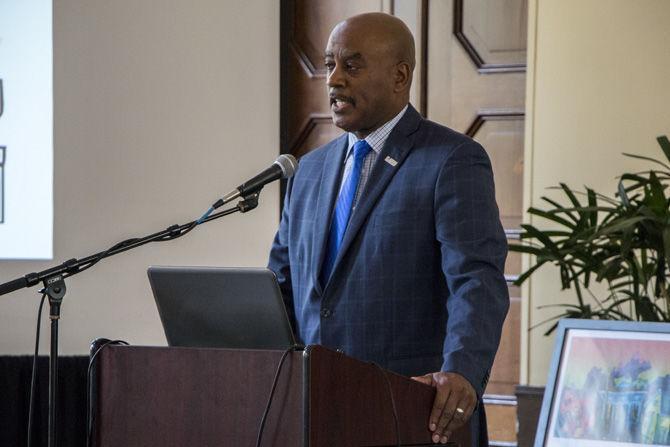LSU was chosen to receive the Higher Education Excellence in Diversity award along with 89 other distinguished colleges throughout the nation.
The HEED award denotes a university’s “outstanding commitment to diversity and inclusion,” according to the sponsor of the award, the Insight into Diversity Magazine.
Vice Provost for the Office of Diversity Dereck J. Rovaris said the award “is a signature distinction that validates the work [LSU] has been doing.” LSU is one of the few schools honored with 8 HEED awards.
“This means a lot to LSU,” Rovaris said.
The University has numerous programs targeting racial, ethnic and gender minorities around campus, as well as representation for people with disabilities and international students.
“There are a host of programs that we do to support diversity and inclusion at LSU,” Rovaris said. “Everything from Welcome Week activities to graduation ceremonies and everything in between. Even recruitment activities.”
Rovaris said the HEED award analyzes every sector of a campus in terms of diversity.
“They look at your diversity practice in terms of raw data numbers of students, faculty and staff,” Rovaris said. “They look at your programming. They look at your institutional support and commitment. They look at satisfaction of students.”
Rovaris said the University’s next priority is to increase faculty diversity.
“That’s a problem that’s not unique to LSU. It’s seen across the country,” Rovaris said. “All of us agree we need more faculty of color.”
Rovaris said that after the Black Lives Matter movement came to the forefront of American politics over the summer, many initiatives at LSU were greenlighted.
“I give students a lot of credit because when they came together their voices were loud, they were clear, and they were on point,” Rovaris said. “They actually compelled us to do the work we were planning to do.”
All of these factors culminated in LSU receiving the HEED award; however, Rovaris said the work to promote diversity on campus isn’t finished.
“Let me be clear: LSU is far from actualizing its full potential in these areas,” Rovaris said. “But to be recognized means you’ve done a very good job in working towards that.”
Rovaris said much of the work in diversity and inclusion takes place among the student population. He tasked students to “stand up for those who might be marginalized” where they may not be able to stand up for themselves.
“Stand up for justice and stand up for equality,” Rovaris said.






